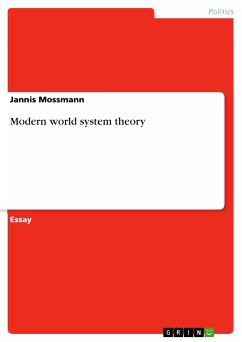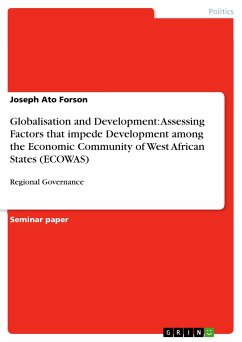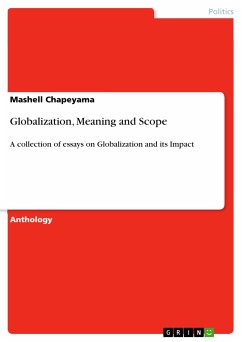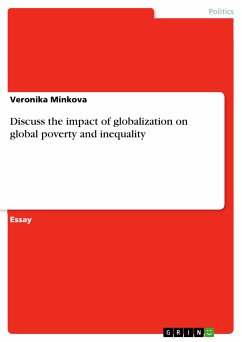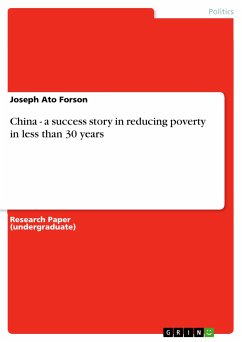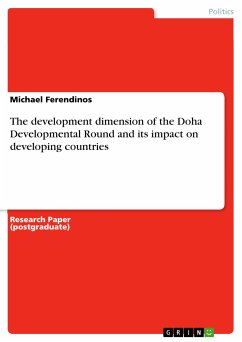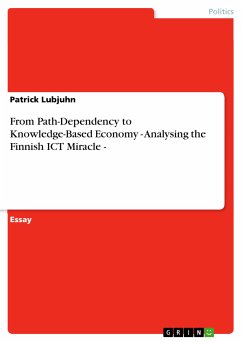Essay from the year 2007 in the subject Politics - Topic: Globalization, Political Economics, grade: 72, Stellenbosch Universitiy, course: Comparative Political Economy, language: English, abstract: Immanuel Wallerstein′s Modern World-System theory is a structural approach to analyse social change. In response to the liberal theory, which differentiated three social spheres (the market, the state, and the civil society) operating according to different logics, Modern World-System theory states that politics and economics cannot be viewed as distinct social spheres, they are two interrelated fields of study (Wallerstein, 2004). Wallerstein sees underdevelopment and development, the status of states in our "globalized" world today, not in the responsibility within the countries themselves, but as a consequence of historical capitalism and the interstate system. Thereby, he regards internal and external factors which describe why the world is how it is today. This essay will give a short overview about the Modern World-System theory and clarify why the pursuit of profits and power are one and markets are politically structured and maintained. Afterwards, I state the advantages and the disadvantages of Modern World-System theory and finish with a conclusion.

